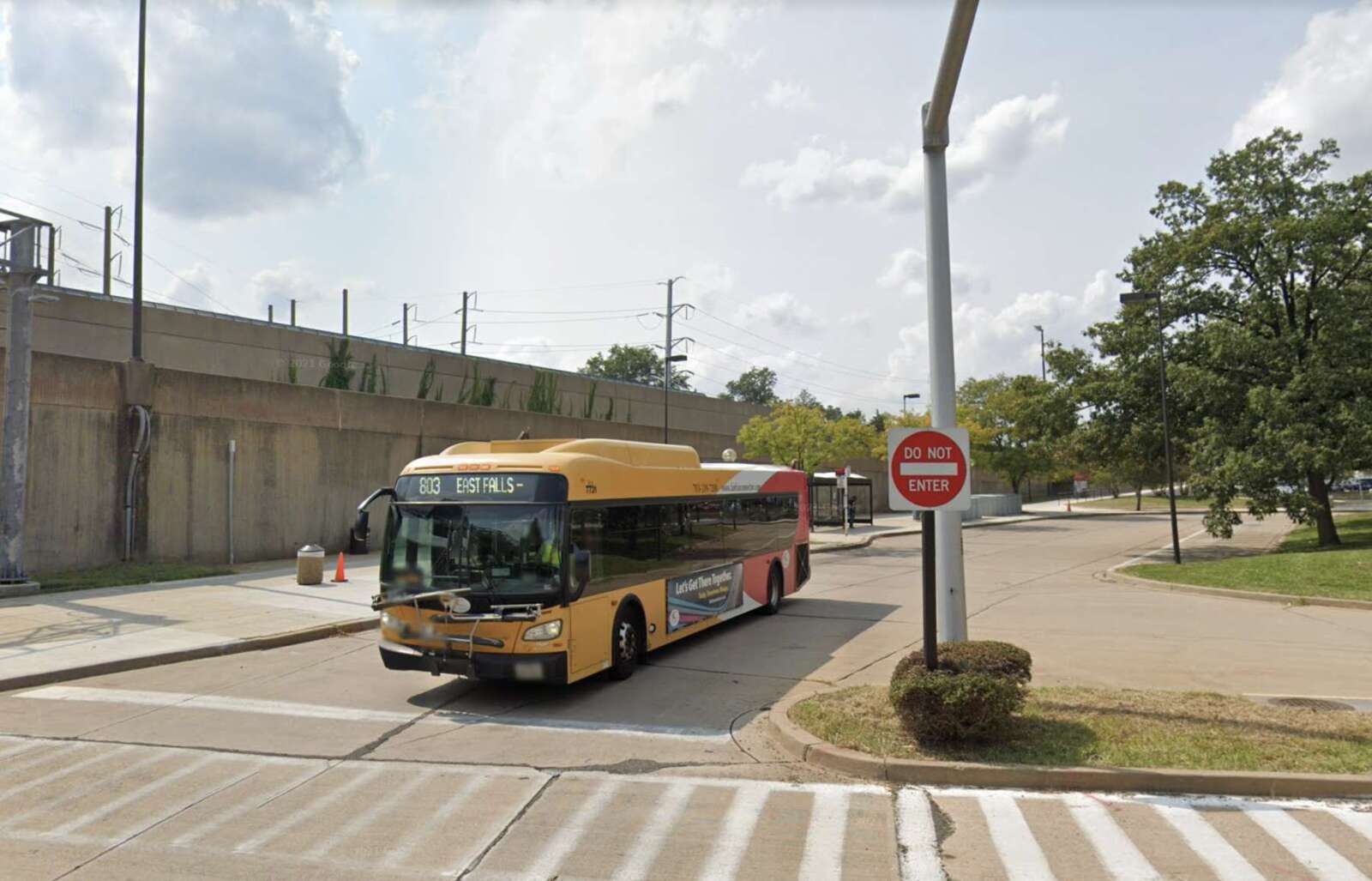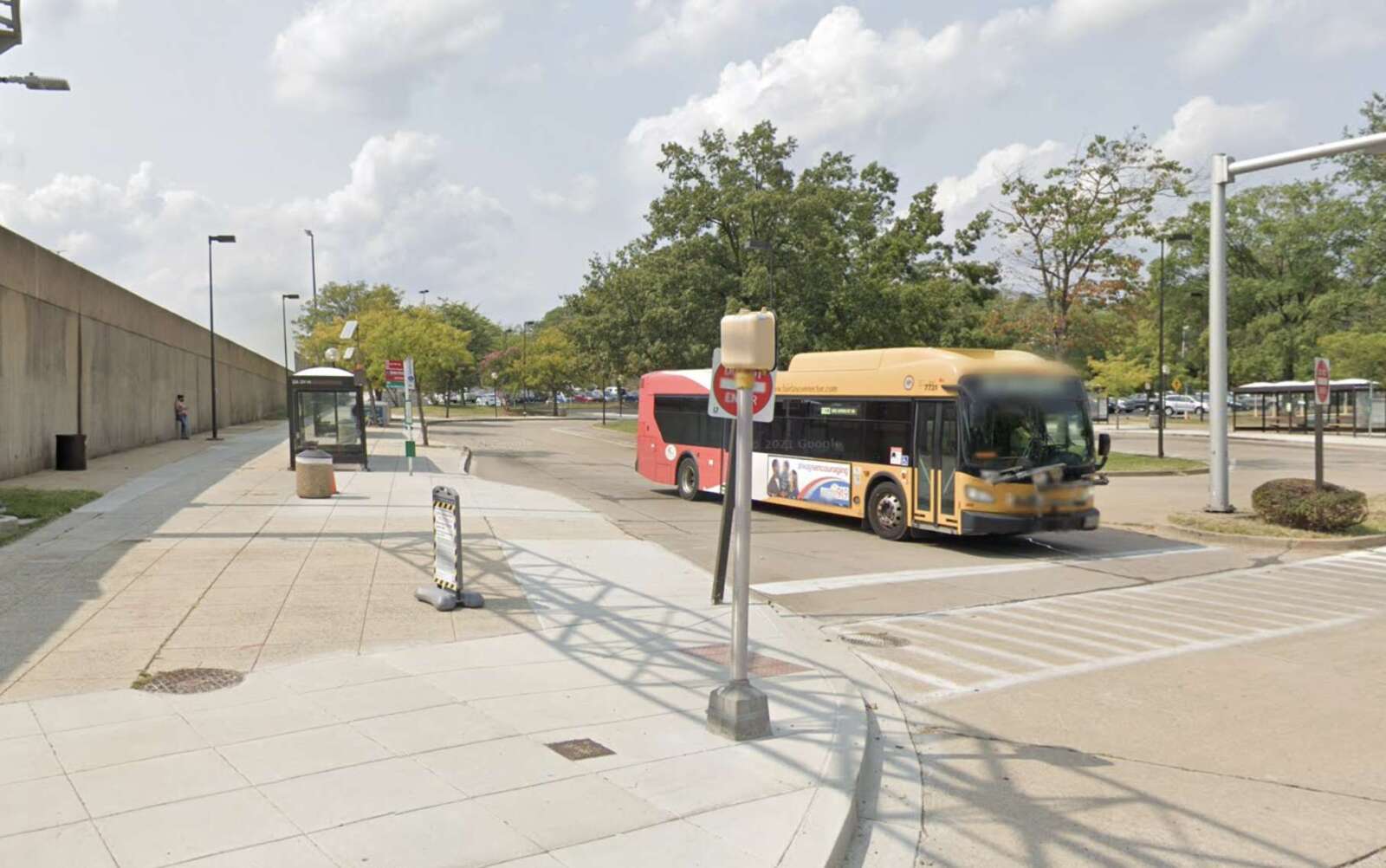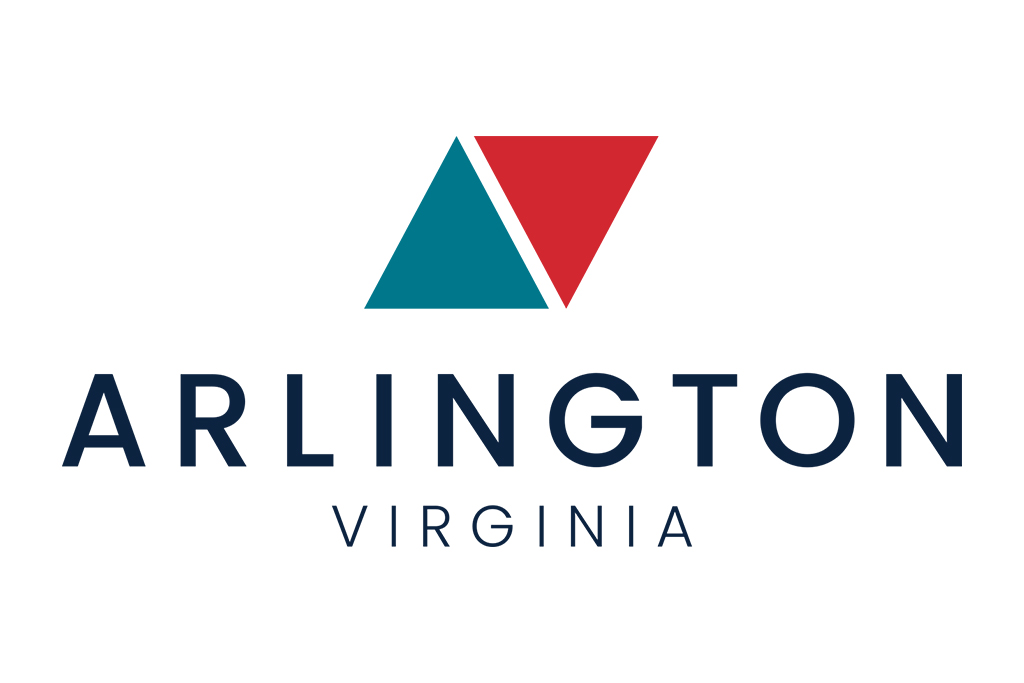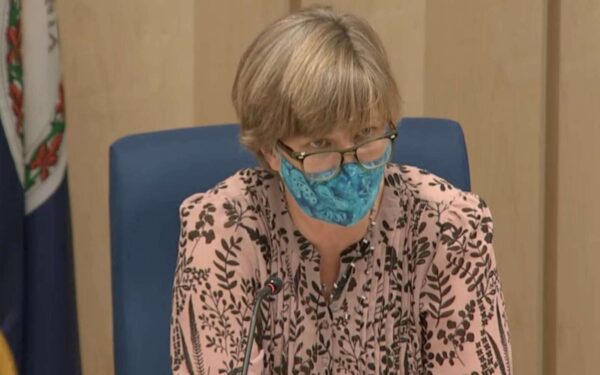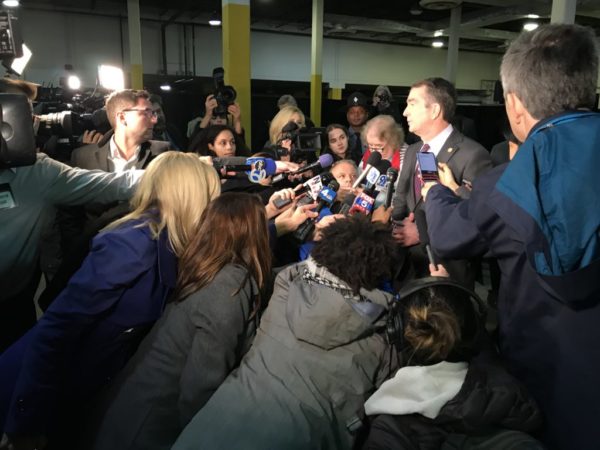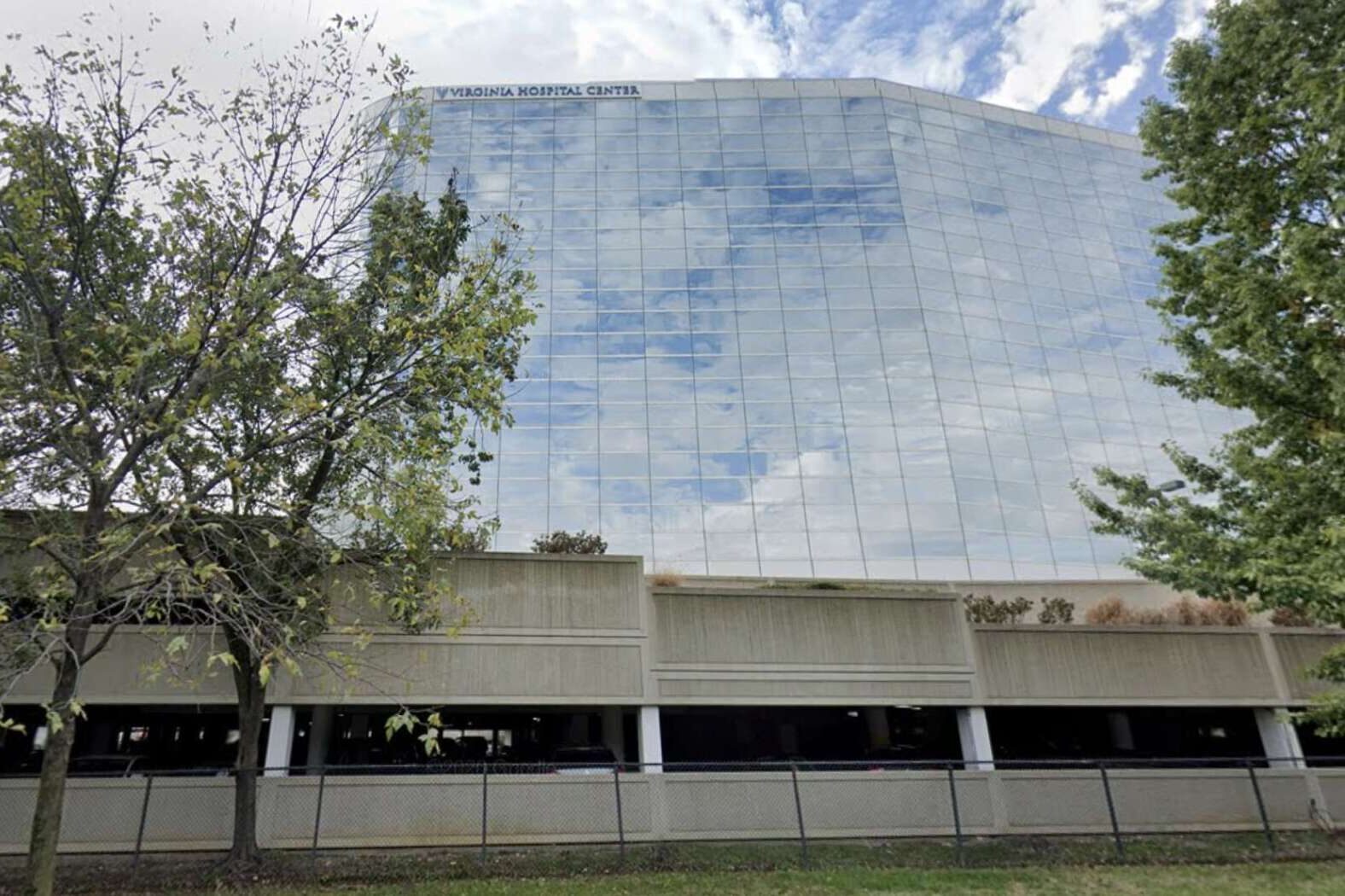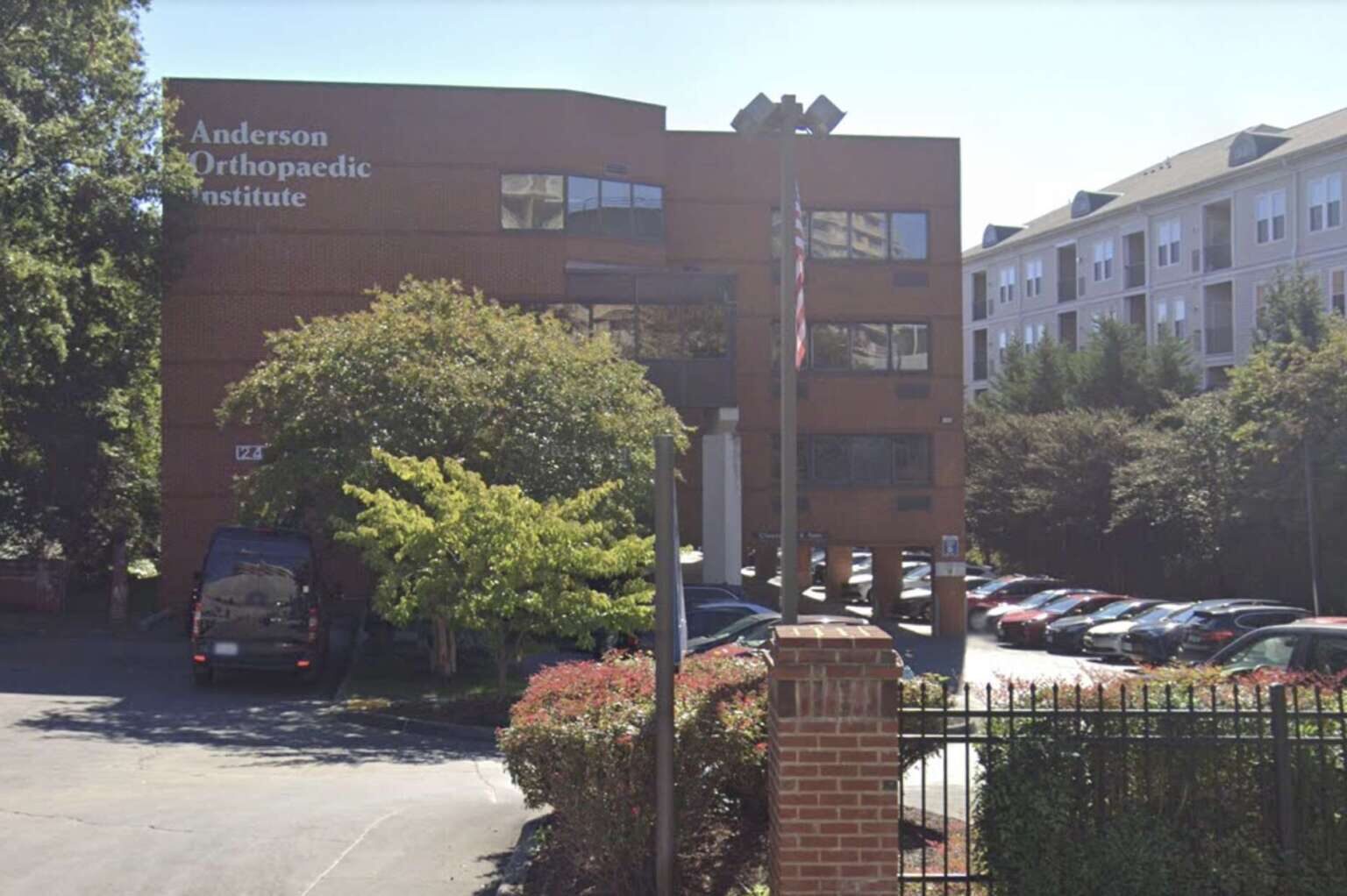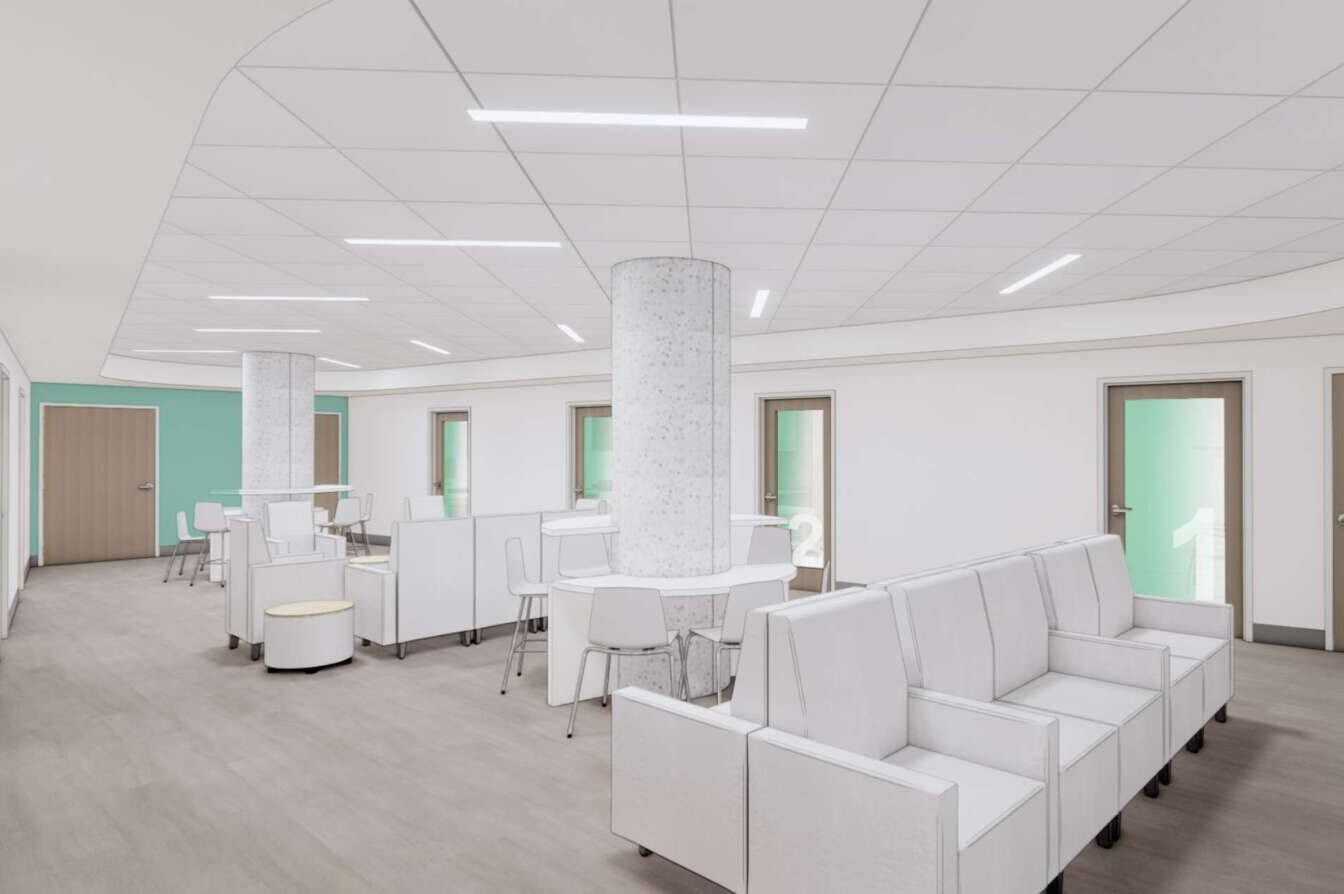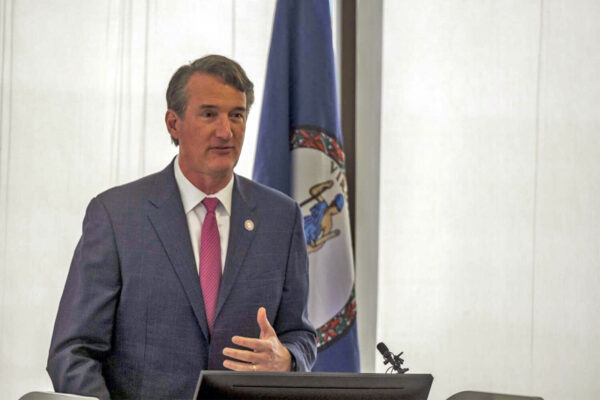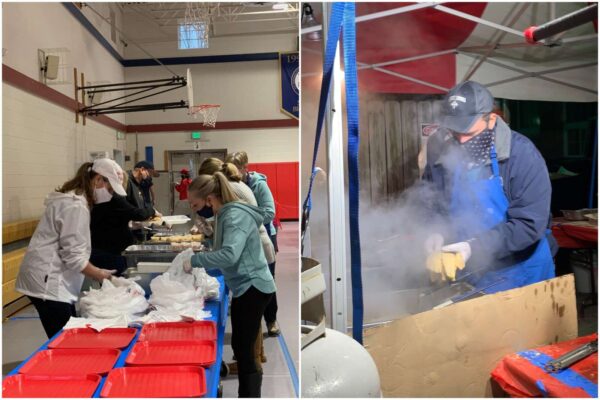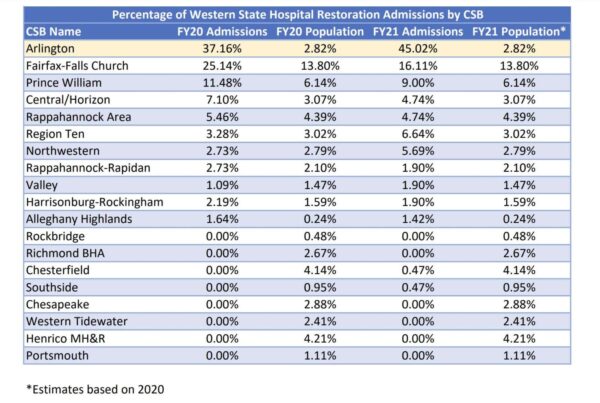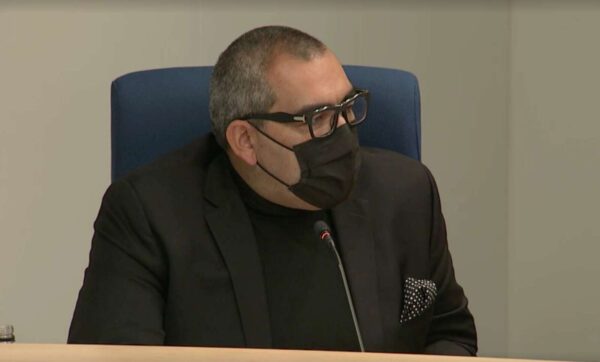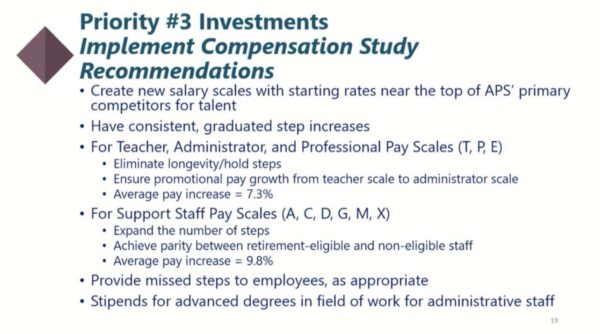Arlington County is requesting feedback on partial designs for expanded bus bays and pedestrian safety improvements at the East Falls Church Metro station.
The $6.6 million bus bay expansion project, a capital improvement project approved last year, is part of a handful of near-term upgrades planned at and around the Metro station, the parking lot of which was frequently packed pre-pandemic.
Project and regional transit representatives say the expansion will allow for more regional bus routes without causing traffic jams while making walking from the park-and-ride lot safer. The existing bays currently serve nine Metrobus, Arlington Transit (ART) and Fairfax Connector bus routes.
“The East Falls Church Metrorail station currently has four bus bays that are at maximum capacity,” according to the county. “The project will expand bus bay capacity by adding up to three new bus bays and replacing the existing shelters in the off-street bus loop at the East Falls Church Metrorail station.”
Arlington is leading and sponsoring the project, but Washington Metropolitan Area Transit Authority (WMATA) owns the Metro station, the bus loop and park-and-ride lot.
The county asks locals to say whether the proposed changes will make them feel safer walking, taking the bus, biking, scooting and driving. The survey, open through Sunday, March 20, includes an interactive map people can use to give location-specific feedback.
Behold: Beginning bus bays betterment, bigger Bikeshare btw. Bedazzled? Bemused? Bellow: https://t.co/8EbaL9GfPF. pic.twitter.com/sz9nld8mQ3
— Arlington Department of Environmental Services (@ArlingtonDES) March 3, 2022
“What this expansion will allow us to do is get buses in and out of the bus loop more efficiently so we don’t have as much gridlock as we currently do at this time,” WMATA planner André Stafford said in a meeting Tuesday.
It may be awhile before more bus routes are added, county transit planner Paul Mounier said in the same meeting.
The county will install seven new bus shelters and is considering adding a new signal and crosswalk at the Washington Blvd entrance to the park-and-ride lot.
Arlington County staff identified this expansion project back in 2011. Four years later, staff found the biggest needs were increasing the capacity of the bus bays, adding refuges to the 150-foot crosswalk that passes in front of the bus loop, replacing the aging, hazardous cement and adding ramps accessible to people with disabilities.
After the expansion work, Arlington will make streetscape and signal upgrades to N. Sycamore Street, Arlington County project manager Kenex Sevilla said Tuesday. The street forms the eastern edge of the Metro parking lot and bus bays.
Meanwhile, both Arlington and the City of Falls Church are expanding Capital Bikeshare stations nearby. The station was once a popular station to ride to that is still recovering from the pandemic-era hit to commuting. A new $2 million, 92-spot bike facility to accommodate cyclists made its debut in August 2020.
This area is poised to see other development in the future, too. WMATA is studying the site for future transit developments while the Department of Community, Planning and Housing Development is studying it as part of the Plan Langston Blvd initiative. A second entrance to the station was put on hold in 2018.


